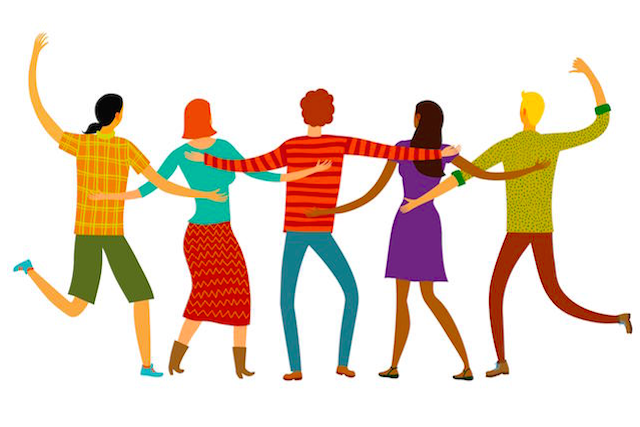|
Photo by Dimitri Houtteman We’ve all used the expressions “follow your heart” and “gut instinct” but we tend to assume that all our thinking happens in the brain. But it turns out that is not correct. Neuroscience has exposed to us that we, in fact, have two other powerful brains that guide us:
We need our brains to be working in unison. In fact, when you find that you aren’t acting in what you think is your best interests, its worth checking that your head, heart and gut are fully aligned. Given that the gut is responsible for action, procrastination’s often a sign of the brains not all being in agreement. One way to correct this is to examine a situation you feel misaligned on from each of these perspectives:
When I first started coaching, I wanted to do it part time and get another part time job. So far, so sensible. But my heart and gut had their own plans. Every time I spoke to a recruiter about finding work in my old career, I would hear myself saying “all I really want to do is coach” and of course, that would scupper all my chances of getting work. I eventually gave up fighting it and threw myself 100% in to coaching, which I have never regretted! When was the last time your brains were not aligned? Was you heart not in it? Did your gut tell you no? How did it go?
0 Comments
Image: D&D Beyond When was the last time you... ...lost your temper and later wondered how that even happened? ...said yes when you knew you should have said no? ...went on FaceBook for ‘a minute’ and stayed for a few hours? ...said you’d start a diet and then ate a piece of cake? ... were hijacked by your saboteurs? Our saboteur thoughts come from our early years, when life was confusing and sometimes scary. How ever good or bad our childhoods were, each of us came up with simple guidelines to try and stay safe. Rules like "don't make adults angry" or "don't make mistakes" or "lie low and you'll stay out of trouble" and somehow, we cruised into adulthood without ever checking that those edicts still hold water. And, because they have been with us all our lives, we trust them implicitly. Middle-aged me can be intimidated by people with a certain kind of confident demeanour because my inner child instantly sees them as as being more powerful than I am. Effectively, we're all following a map that has parts that were laid out by our five year old selves and we wonder why we sometimes get stuck in the mud. I have yet to meet someone who is saboteur-free so its great news that there is a tool that can help us all defeat them. Rooted firmly in neuroscience, cognitive and positive psychology, and performance science, Positive Intelligence is a easy-to-adopt protocol, neatly slotted into an app, that can reduce the unhelpful thought patterns and behaviours all of us have picked up in some way during our childhoods and replace them with positive, constructive thought strategies, It consists of three steps that work together to rewire your brain to make new default behaviours:
There are 10 saboteurs and each of us have all of them to some degree, with some being more influential than others for each of us. Here is a brief summary of each of them:
If you are interested in finding out more about it you can:
Disclosure: I was invited to be one of the first cohort of coaches, called PQ pioneers, who trained with Shirzad Chamine, the creator of the program, and are still working with him to develop a way to spread the word and bring this amazing tool to the world. TL;DR - make sure that your behaviour doesn’t inadvertently trigger a threat response in other people! Neuroscience tells us that our desire to minimise threat and maximise reward is what motivates our behaviour. And the part of our brain that governs this is our most primitive brain, the amygdala, which also looks after our basic survival needs. This totally makes sense from a species development perspective - we need to be able to quickly discern what is dangerous and what will help us thrive. It turns out, according to the SCARF model (Rock, 2008), that co-locating these two functions in the limbic system means that we respond to social threats and rewards in a similar way to physical threats and rewards. We are very quick to decide if something is ‘good’ or ‘bad’ for us and take action accordingly. In fact, that part of the brain can react faster than we can actually think, so its more of a reflex than a conscious thought. The SCARF model looks at our lighting fast responses to 5 areas of human social experience: Status, Certainty, Autonomy, Relatedness and Fairness and how humans process information in those areas in order to decide if someone else is a friend or a foe. The model was originally interpreted in an organisational context, to help leaders engage with their teams better but it has potential for much wider application.
Status There is research that suggests higher status individuals (also seen in ape communities) live longer than others, due to having lower baseline cortisol levels. Many animal social units are structured around just one adult male in the group, to ensure genetic survival and any threat to that is fiercely defended. Being higher status also helps to guarantee increased access to basics like food, water and shelter - and often much more than that as well. With survival at stake, we do not respond well to threats to our place in the social pecking order. It activates the parts of the brain involved in the perception of physical pain. Sometimes the 'threat' is unintentional: giving advice and offering criticism are the types of experiences that are interpreted as a status challenge and thus seen as being highly dangerous. On the other hand, praise, recognition, promotion, responsibility and access to information are seen as rewards and with this insight its easy to see how the way that we treat people will be interpreted by them at an instinctive level and cause cause them to respond in a way that that can have a huge impact on our own survival. Certainty In order to not over tax or brain resources, we tend to rely on pattern matching to identify situations where we need to focus more intently. Which is why its possible conduct familiar tasks on auto-pilot and almost be mentally elsewhere, for example, while driving a car on a routine journey. Unexpected events, like a dog crossing the road, jolts us back into consciousness. When humans are in situations where they can’t relax into a comfortable predictable pattern, they experience ongoing low level stress, which impairs the function of the orbital frontal cortex. The impact of this is not insignificant because it can significantly reduce productivity. Conversely, certainty triggers dopamine, the reward hormone. We can create a sense of certainty by, where possible, being clear about what is going to happen, establishing and sticking to routines and keeping people up to date. Autonomy Research indicates that loss of autonomy - the ability to have some control over one’s environment - can impact our cognitive ability, mental health and ultimately our physical health. Being micromanaged can trigger a threat response and being in a team basically invites less autonomy due to the need to cooperate and work together. Giving people choice and a sense of control can minimise the threat response and even increase a sense of getting a reward. Relatedness Being part of a group was, for our ancestors, a matter of life or death and exclusion was a terrifying punishment. Humans are very skilled at assessing whether someone is safe to trust or not. Relatedness is our sense of safety with others and being part of a group. Lack of relatedness, when a person feels excluded, can reduce creativity, commitment and collaboration - essentially, they withdraw. When a person feels connected with others, Oxitocyn is released and creativity, commitment and collaboration increase. We can make people feel more included in a range of ways, from shaking hands to exchanging a bit of small talk and, in a work context, including them in conversations and making decisions. Fairness A number of studies have shown that fairness is an important motivator for us and is intrinsically rewarding to humans. A perceived increase in fairness and a financial reward both activate the same part of the brain. A sense of unfairness lights up the same part of the brain that responds to disgust and can be the motivator for political struggles and more. Unfairness at work can affect mental and physical health. To avoid triggering a threat response based on unfairness, be clear about rules, the logic that drives decisions like task allocation and reward structures.
The SCARF model can be applied in many areas of life, from self-management, to educational and leadership development. Once we understand why we and others feel threatened, we are able to use alternative strategies that focus on the reward response to get the outcomes we are looking for.
References
|
Author25 years experience in helping teams build user centred products and services, now helping digital colleagues learn how to bounce back better than before from the challenges life throws at us from time-to-time. Archives
December 2022
Categories
All
|




 RSS Feed
RSS Feed